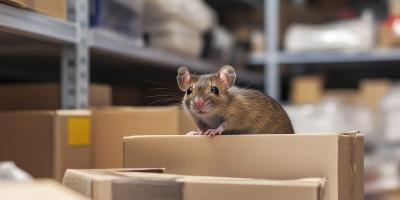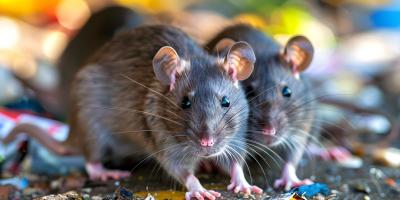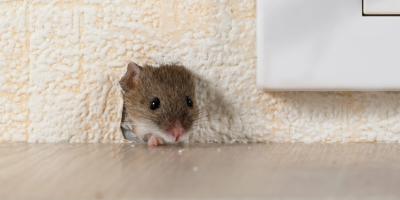Protecting Your Restaurant From Rodents

Rodents found in a restaurant pose a serious threat to the business’s food safety programs and can irreparably damage its reputation. One customer spotting a mouse can write a scathing review online, which will prevent countless customers from considering your venue. Worse yet, a rodent issue can result in an immediate shutdown, resulting in a permanent loss of formerly loyal customers. Especially during the fall and winter months, rodents will enter your restaurant for food, water, and shelter from the cold. Working with a professional pest management provider can help you eradicate an existing rodent issue and/or take steps to prevent and minimize risk from one occurring in the first place.
Additionally, a professional team can keep detailed records of all the steps taken -- including proactive measures -- and record logs of rodent activity in traps, which can win you a higher score when the health inspector visits. In order to avoid a rodent problem, you must take steps to deny them the three things they are seeking; food, water, and shelter.
What Rodents Want: Food, Water, And Shelter
Rodents are prolific scavengers and will happily accept whatever scraps are left behind. Cleaning schedules in the kitchen should be followed religiously, and the exterior of the building needs be clean as well. Dumpsters should be routinely cleaned and rotated, and all lids for trash cans should be sealed tight. All of the outdoor receptacles should be cleaned regularly, because the odor of food alone can be a major factor in attracting rodents to your area.
Mice can squeeze into your building through a hole the size of a dime. Rats can enter through a crack the width of a quarter. Sealing possible entry points from the outside will prevent rodents from seeking the warmth of your building, even if the outside area is spotless. Rodents do not like to be out in the open, so removing adjacent shrubs and bushes can help dissuade pests as well.
Rats need a water supply for survival, whereas mice can often get enough hydration from food alone. Stagnant water and moist areas, both internally and externally, will attract other pests and bugs as well. A professional company can help you identify these areas in your restaurant and find solutions for reducing or eliminating them.
Call The Professionals
Most pest control companies perform consultations to discuss strategies and current situations for free. Service technicians can set monitoring devices to keep a close tab on activity in your restaurant on an ongoing basis. As mentioned above, good documentation of the steps taken to eradicate and prevent rodent and other pest issues can win you a more favorable rating with health inspectors and greatly reduce the risk of your business temporarily closing.
Each restaurant and building is different, so it’s important for your service provider to create a personalized management plan to deal with these pests and keep your restaurant ready for business.
Are you concerned about pests or rodents infesting your business? Do your employees know how to react to a pest sighting? Contact JP Pest Services for a free commercial consultation today. Our experienced professionals can educate your personnel on how to handle industry-specific pests to keep your business up and running.



